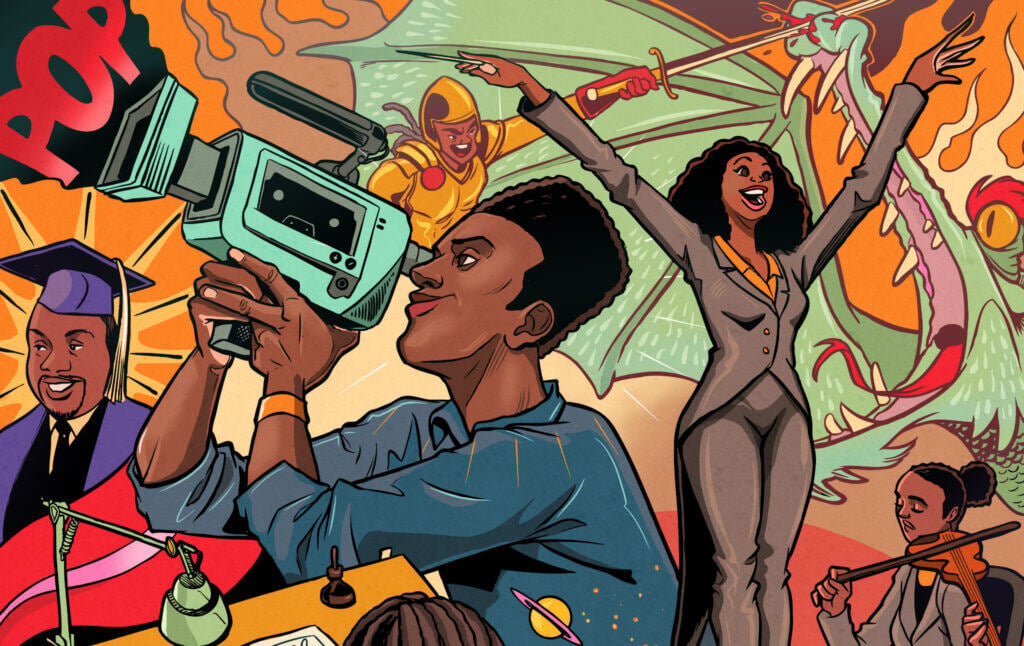My Insight Hub
Your go-to source for daily insights and updates.
Reality Show Renaissance: More Real Than Reality?
Explore the Reality Show Renaissance and uncover the truth: Are these shows more real than reality itself? Dive in for shocking insights!
The Evolution of Reality TV: How Authenticity Redefined the Genre
The evolution of reality TV has been a fascinating journey, marked by the shift from highly scripted narratives to a more organic representation of real life. In the earliest days, shows often blurred the line between reality and fiction, drawing heavily on producer-driven plots that favored dramatic moments over authenticity. However, as audiences became more discerning and critical, the genre began to pivot towards formats that emphasized genuine experiences and unfiltered interactions. This evolution can be seen in programs like Survivor and The Real World, which helped redefine the genre by presenting relatable narratives and real emotional stakes.
As a result, the demand for authenticity has reshaped how producers create content within the reality TV landscape. Viewers are drawn to shows that present unscripted moments and honest portrayals of participants' lives, leading to a boom in genres such as documentaries and lifestyle reality series. Programs like Queer Eye and The Real Housewives franchise have thrived on this premise, showcasing vulnerability and personal growth while still delivering entertaining content. This shift towards authenticity not only reflects changing viewer preferences but also continues to challenge reality TV to reinvent itself in order to stay relevant.

Are Reality Shows More Scripted Than We Realize? A Deep Dive
The world of reality television has captivated audiences for decades, offering a tantalizing glimpse into the lives of seemingly ordinary people. However, as fans become more discerning, the question arises: Are reality shows more scripted than we realize? Many popular shows, such as The Bachelor and Survivor, have faced allegations of manipulation and scripting to create more dramatic narratives. Producers often wield significant control over storylines, manipulating situations and editing footage to ensure that certain moments fit their crafted narratives, making it hard for viewers to discern what is genuine versus what is orchestrated.
The extent of scripting varies across different shows, with some reality formats deeply entwined with scripted elements. For example, producers may provide participants with specific scenarios or prompts to elicit dramatic reactions, effectively scripting the emotional highs and lows that keep audiences glued to their screens. A Variety article highlights how some reality stars are well aware of the game, adjusting their behavior to fit a pre-determined storyline. This blurring of lines between reality and artistry leaves us questioning the authenticity of what we watch, prompting a deeper exploration into the world of reality television.
What Makes a Reality Show 'Real'? Exploring the Fine Line Between Fact and Fiction
The allure of reality television lies in its promise of authenticity, yet the definition of what makes a reality show 'real' is often blurred. Through a carefully curated lens, producers select, edit, and manipulate footage to create compelling narratives that resonate with audiences. This carefully crafted storytelling can make viewers question whether they are observing genuine interactions or scripted moments designed for entertainment. As The Atlantic notes, shows like Big Brother and The Real World often employ tactics that heighten drama, leading to a fascinating intersection where fact meets fiction.
Moreover, the participants themselves play a significant role in shaping the perception of reality. Influencers and cast members are often aware of the audience's expectations, guiding their behavior in ways that enhance their on-screen personas. According to HuffPost, many individuals audition for reality shows with the intention of crafting a specific narrative, which further complicates the notion of authenticity. The fusion of scripted elements and genuine reactions creates a unique hybrid that invites viewers to question the reality of reality TV, making it an intriguing subject for analysis.